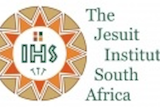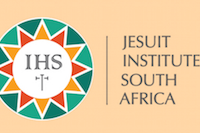South African Reflection: Finding hope in a time of despair

Annemarie Paulin-Campbell
Source: Jesuit Institute South Africa
At our Ignatian Day, Archbishop Thabo Makgoba, the Primate of the Anglican Church in South Africa, spoke about "Ignatian Spirituality: Finding God in South Africa today." In the question and answer session following his talk, people shared with great feeling, their anger, frustration and concerns about so many of the struggles we face in our country. They spoke of the simmering anger of many in the townships at the lack of service delivery and the lack of forums for conversation. Others spoke about the withdrawal of prayer and religious education in public schools, others were concerned about children who are addicted to drugs and have become violent.
Also deeply disturbing are the recent court cases involving the public protector, the massive bail-out of Eskom, and recent statistics that show South Africa is the most dangerous country for women.
When we look at countries like the United States, we see gun massacres on the scale of more than one per day in the past year. We see immigrants separated from their children who are being kept in cages in appalling conditions. Most alarmingly, there seems to be a rise in white supremacist and racist rhetoric and attitudes.
Globally, we face a climate crisis. The unprecedented heat-waves experienced in most of Europe this summer, and now floods around the world, underline the urgency of the crisis in which we find ourselves. People are talking about the syndrome of "climate despair" - this is when people experience extreme depression and anxiety because they see the imminent threat to civilisation and feel powerless to do anything about it.
And the question underpinning all is: How do we find hope?
The risk is that it all seems so overwhelming, that we settle into a state of withdrawal and apathy and a growing societal depression. Without minimising the reality and pain of our situation, the consistent message that came through in Archbishop Thabo's responses to the questions about how to find hope, was the encouragement to take initiative and do something where you are. He spoke of a woman who sold chicken feet at a school when he was a schoolboy in Alexandra. She made it her mission to encourage and pray for learners. He spoke of the impact this had on him.
It was a hope-filled experience to see well over 100 people from diverse backgrounds gathered to share their common concern for our country. Beyond racial, economic, cultural and ecumenical divides - people seeking the common good. Perhaps we all need to be encouraged again to trust that we are called into partnership with God. We can each do something where we are with what we have.
We cannot allow ourselves to be sucked into a vortex of despair. Concrete actions done for the common good are the best way to nurture the flame of hope. As Gandhi put it: "be the change we want to see."
Follow Annemarie Paulin-Campbell on Twitter @annemariepc_c
Follow The Jesuit Institute on Twitter @JesuitInstitute


















